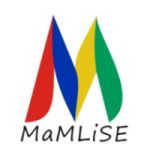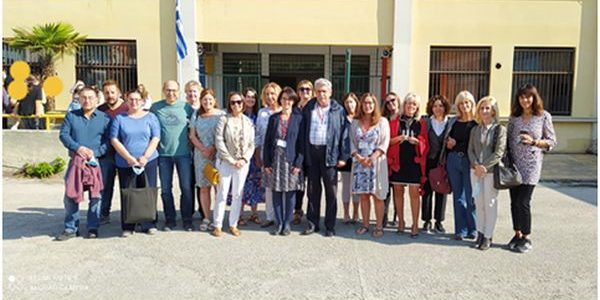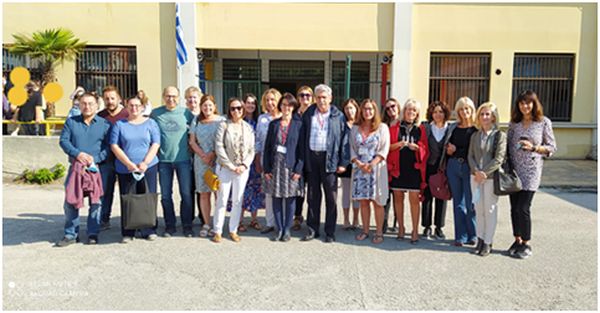
Report from the short-term joint staff training event (Activity C2)
Meeting specification: A short-term joint staff training event (Activity C2)
Date of the meeting: 04.10.-06.10.2021
Location: Ioannina/Greece (hybrid participation was possible)
Hosting Institution: 2nd Junior High School of Ioannina Intercultural Education, Greece
Day 1: 4th of October, 2021
10:00-16.30 (CET), 11:00-17.30 Greece
The training event started as planned on the first day and the participants were warmly welcomed by the Headmaster of the 2nd Junior High School of Ioannina Intercultural Education, Mr. Stefanos Syrmakesis, and the Mayor of the City of Ioannina, Mr. Moses Elisaf. Both emphasised the importance of schooling and education for the successful integration of the pupils into the multicultural society that the school and Ioannina strive to foster. Afterwards, the Headmaster delivered an enlightening presentation on the history of migration to Greece, with a focus on its societal and personal impact against the challenges of an unfamiliar language, pastural care, post-traumatic stress and future uncertainty of the migrant families.
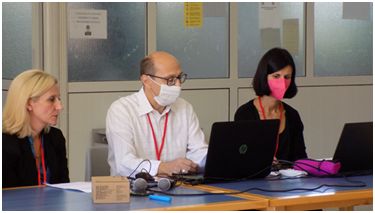
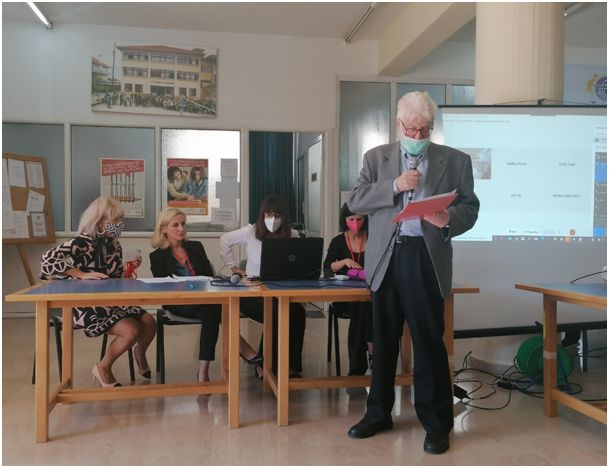
Following this, the ex-headmaster of the school, Mr. Dimitris Kontosakos, delivered a presentation about the participation of the host school in the MaMLiSE project, with a particular focus on the mission of the school and how the project is embedded within the school’s integration policy through delivering immersive and interactive Greek lessons within a bustling multilingual and multicultural school community.
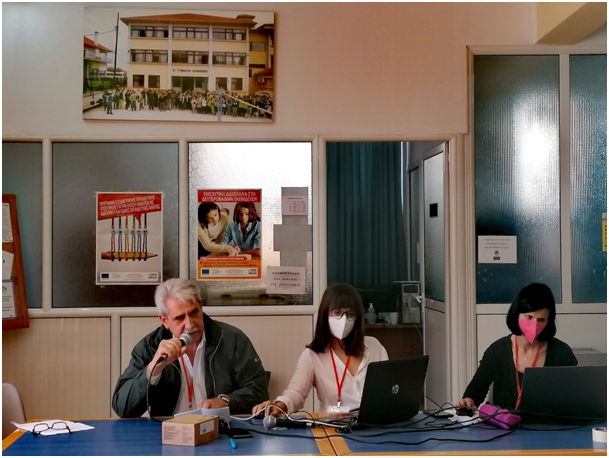
Afterwards, Mrs. Maria Tzouma, a teacher from the host organisation and a team member of the project, delivered a talk about the host school, its structure, curricula and timetable. In doing so, she highlighted the procedure involved in the placement tests and allocation of pupils based on their entrance exam. A round table open discussion chaired by both Mrs. Maria Tzouma, Mr. Stefanos Syrmakesis, and Mr. Dimitris Kontosakos allowed for the training participants to gain further insight into the management procedures at the school and the practical implications pertaining to the constraints involved in the approaches undertaken. During classes, breaks and extracurricular activities, the students are encouraged to communicate in Greek, the language they will have to know to successfully integrate into Greek society
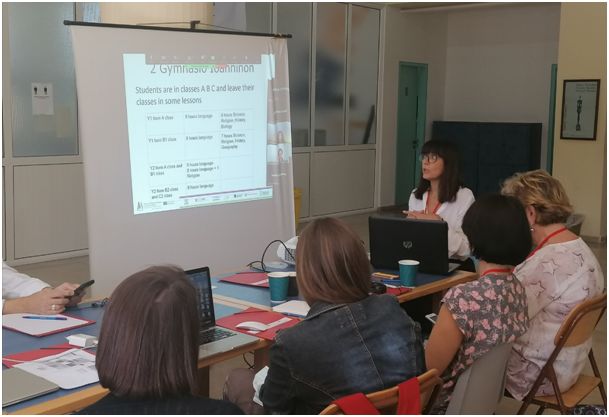
The next speaker, Anna Szczepaniak-Kozak, MaMLiSE Project Coordinator, opened her address by thanking the hosts for organising the training event and then went on to deliver an informative presentation outlining the general scope of the project and planned outputs to the audience members who are not on the consortium team.
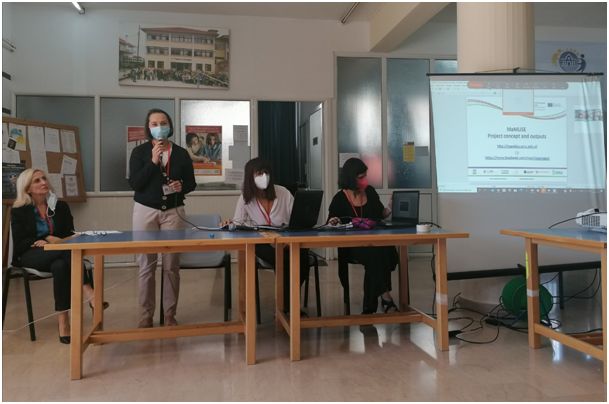
The next item on the agenda was a meeting with the teachers from the host school. It was a Q&A session in which some teachers shared their experience in teaching heterogeneous classes. On a positive note, the teachers mentioned that despite difficulties, in general, they feel that each year the school is improving in relation to the strategies around the way they teach and how they support the migrant children. The teachers expressed the importance of their roles not only as an educator but, also as a kind of social activist for the migrant children. Teachers evaluate their performance regularly and try to enhance their teaching approaches. Their main pedagogical aim is to encourage children to take full advantage of education, using different resources (e.g., media, available didactic materials, etc.). As for the pupils themselves, they integrate well in general. At times, the girls tend to show a more positive attitude to school in comparison to the boys. Thus, the girls are extremely motivated to learn and there is a lower degree of school dropouts among them in comparison to their male counterparts.
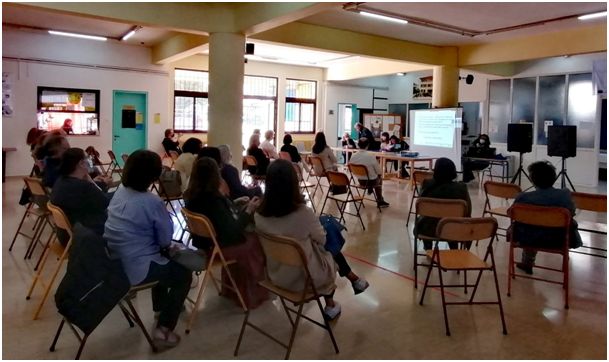
After the lunch break, the final point on the agenda for the first day was a meeting with parents of children of migrant backgrounds. Accompanied by community interpreters (in Farsi and Arabic), the parents shared with the MaMLiSE project partners their generally positive impressions from the cooperation with the school as well as the worries of everyday life on emigration. The problems reported related more to the provision of learning materials and travel to the school than to dissatisfaction with their children’s academic performance. The children are becoming the interpreters for their parents because they are going to school and have interactions.
The meeting was also attended by a regional coordinator of the Ministry of Education for foreign children. Her tasks include, in particular, helping parents/children to find suitable schools and the general supervision of the educational process of non-Greek-speaking children. In her speech, she emphasised the importance of sending the children to school instead of learning at their current residence. She urged the assembled parents to tell others in their community to send their children to school no matter what country they associate their future with. She also highlighted the importance of the continuity of their learning and acquiring basic subject knowledge in Math, History, Biology, Geography and other subjects. Children who attend school in Greece will receive appropriate certificates and, in case of relocation, can continue their education in the destination country. She conveyed a valuable message, which became the informal motto of our project: School matters.
Day 2: 5th of October, 2021
08:30-16.30 (CET), 09:30-17.30 Greece
The day started with a briefing session led by the hosts in which they presented the agenda for classroom observations and the rules of the partners’ participation in them (no photos of children were allowed, only written notes were permitted, each lesson was observed by 2-3 partners on the project). From morning to lunchbreak, the training participants who attended the event in person were allowed to observe several classes with thanks to the courtesy of the host institution.
In-person participants had the opportunity to observe lessons taught by the teachers of Greek, English, Mathematics, Biology, Home Economics and PE. The Greek lesson was conducted in the reception class by two teachers who have professional backgrounds in teaching English and French as foreign languages.
Observing other lessons also provided us with interesting experiences and reflections (English, Math, Computer Science, Biology, Home Economics, and PE classes).
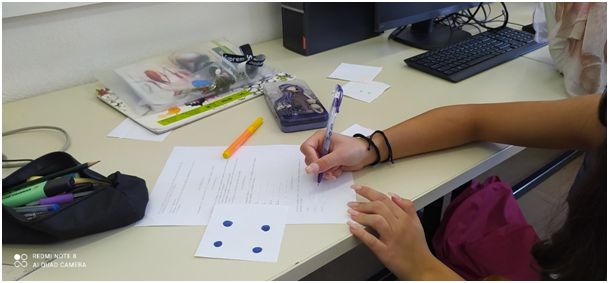
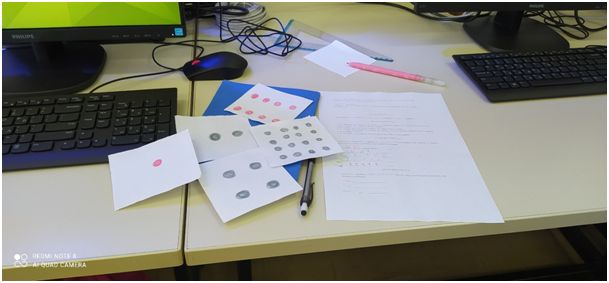
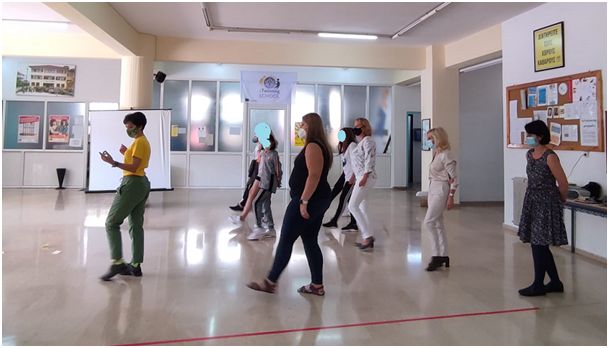
After the lunch break, the partners started their training in the Moodle platform led by the team of CTI, who put a great deal of time and thought into creating this online platform based on the needs of this project. It commenced with an introductory presentation delivered by Mrs. Maria Fountana on how the Moodle platform can support teaching, learning and collaboration between partners of this project.
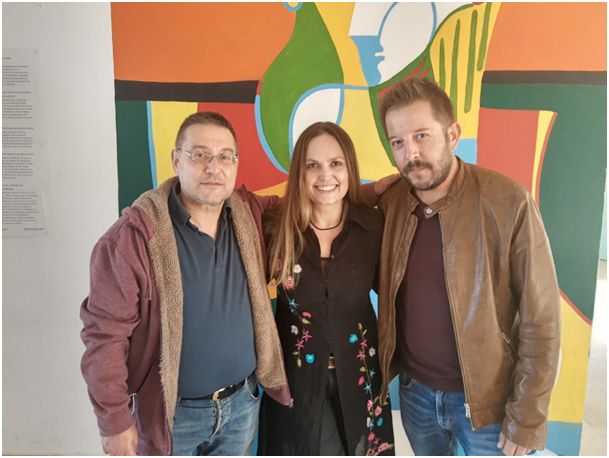
The Moodle platform stands as a separate online platform but, will be connected to the official MaMLiSE website thus, it has the same project branding. In this overview of the learning platform, which will be used as a project management site, Maria explained the structure with one general course for all workshops in English, one course for each country for the collection of localised workshops, and the partners’ collaboration space. The latter section will allow for interactive communication in the form of instant messaging through the live chat function and also discussion forums. In addition, the platform offers a rich resource toolkit in which partners can share folders, files and referenced material combining text, images and embedding useful links.
Subsequently, the practical application part followed the introductory presentation. The partners involved in the training had an opportunity to become familiar with the functioning of the system and undertook serval practical tasks under the instruction of Mr. Giorgos Zagouras and Mr. Ioannis Katsenos.
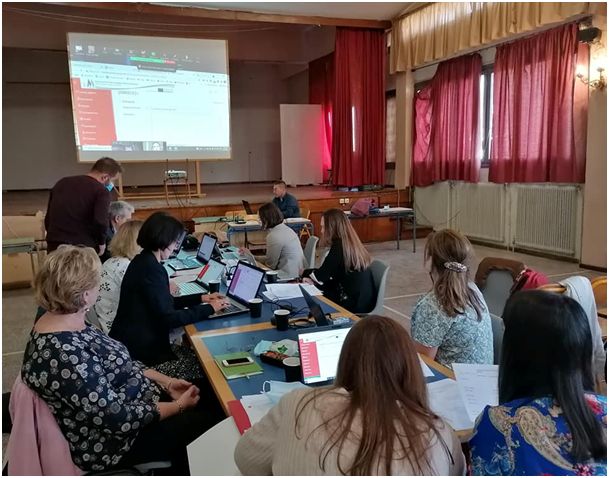
The first and second item of the agenda was completed on this day (i.e. Forum Activity). The remaining items were introduced and practised on Day 3 of C2.
Day 3: 6th of October, 2021
08:30-16.30 (CET), 09:30-17.30 Greece
On this day, the partners continued their training on the Moodle platform under the instruction of the CTI team. The training sessions were recorded for those consortium members who could not be present or who will join the partnership at later stages of the project.
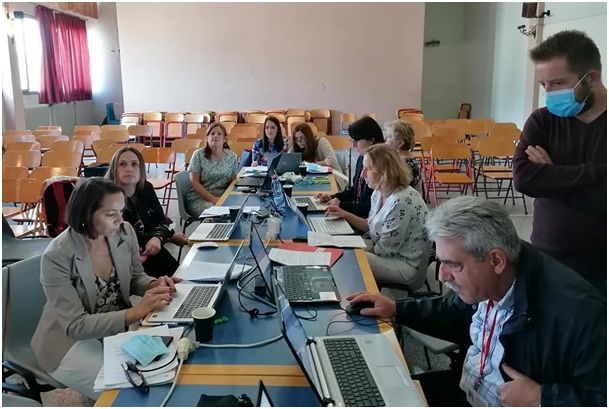
In this practical training session, the CTI team supported the partners in navigating through a series of interactive tasks. The overall aim was to become familiar with the management of the Moodle site and adapt to the flexibility of this interface based on the needs of our project. In doing so, through demonstrations and practical application, we learned how to configure courses, create and share resources and incorporate activities for future collaboration. The team discussed ideas on how to incorporate a more ‘user-friendly interface’ on this Moodle platform in order to successfully navigate through the site and manage content (i.e., teaching/learning materials). This software platform allows for suitable customization to fit the project requirements.
The area of assessment was another feature addressed in the practical Moodle training workshops. Through engaging tasks, we were able to create test quizzes and submit work through the assignments tab. In addition, we were able to see how immediate detailed feedback can be given during the feedback stage using the grade book function. There is also an opportunity to create a comment bank to assist with supplementing personalised feedback using pre-defined statements. Overall, the incorporation of this Moodle platform to our MaMLiSE project will cultivate a truly transformative learning experience and culture of learning for all involved.
The training concluded with a feedback session. Its content and delivery were very positively evaluated. After the feedback session, the training participants were awarded certificates of attendance.
The report was prepared by Anna Szczepaniak-Kozak (AMU) in cooperation with Izabela Czerniejewska (ODN) and Michelle Daly (UL)
